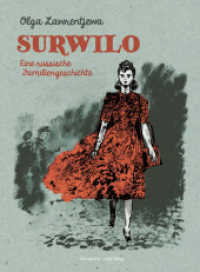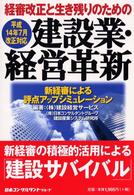- ホーム
- > 洋書
- > ドイツ書
- > Humanities, Arts & Music
- > Philosophy
- > 20th century, 21st century
Full Description
Jacques Derrida emphasized the importance of Husserl and especially his concept of phenomenological reduction for his own philosophical work. A central thesis in this book is that Derrida's deconstruction can in fact be understood as a kind of radicalization of the phenomenological reduction. To show this, the author reconstructs Derrida's criticism of Husserl, which even as it is inspired by and partly based on Heidegger's criticism of phenomenology, can be conceived as applying the «method» of phenomenological reduction to Husserl's phenomenological reduction itself. That the problems of truth, interpretation and reading are crucial not only in his philosophy but also in Derrida's concept of literature is elucidated by his Kafka reading and an extended «Derridean» reading of Kafka's short story In the Penal Colony.
Contents
Contents: Jacques Derrida - Edmund Husserl - Martin Heidegger - Phenomenological reduction - Phenomenology and literature - Literature and philosophy - Interpretation - Franz Kafka - Deconstruction - Intention of the author - Question of context - Temporality - Question of history - «Ultra-critical» literature.








